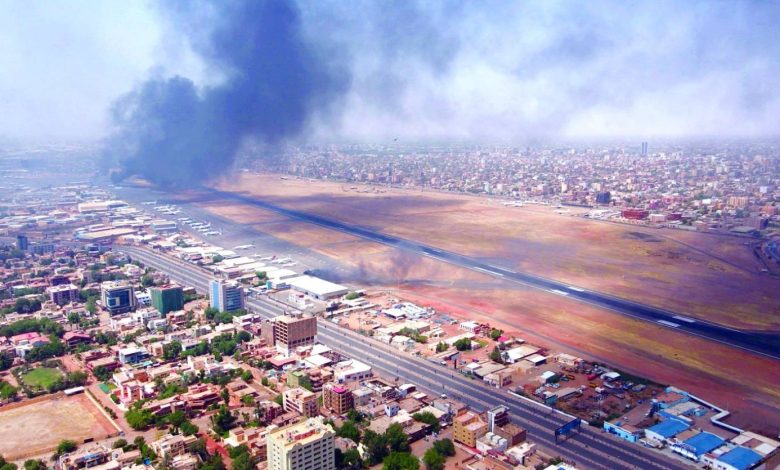Reports
In a seminar in Doha.. The Sudanese Crisis Under Expert Scrutiny

Sudan Events – Agencies
The Al Jazeera Center for Studies and the Arab Thought Forum in Amman organized a research seminar in Doha, Qatar, on Wednesday titled “The Sudanese Crisis Amidst the Ongoing War and Lack of Solutions.” The seminar featured retired Major General Osama Mohamed Ahmed Abdel Salam, a security and military expert; Dr. Hassan Haj Ali, Senior Researcher at the Center for Conflict and Humanitarian Studies in Qatar; Dr. Salah Al-Din Al-Zein, former Director of the Al Jazeera Center for Studies and member of the Arab Thought Forum; and Dr. Mohamed El-Sayed, a human rights activist. It was moderated by Mustafa Ashour, a presenter at Al Jazeera Mubasher.
Battlefronts: The seminar shed light on the Sudanese situation from various military and humanitarian, local, and international perspectives. On the reasons behind the recent successes of the Sudanese Armed Forces against the Rapid Support Forces (RSF) on several battlefronts, the speakers pointed to several key factors, including: The participation of many armed factions in the fight alongside the army, after they had remained neutral, realizing that neutrality was now harming them and their regions.
Wide segments of the population supporting the army, fighting alongside it to defend their homes and properties against the violations committed by the RSF and the mercenaries it employed. This was seen as a stand against those coming from outside Sudan seeking spoils of war. Another factor was the changing perception of the nature of the war. Initially viewed as a “power struggle between two generals,” this impression shifted to seeing it as “a war between a national army defending the country and rebel forces backed by foreign interests with their own agendas.”
The speakers also highlighted the support the army received from some regional powers. Despite the progress made by the Sudanese army against the RSF, the participants viewed the situation cautiously, fearing the balance of power could shift if the RSF received significant external military and logistical support, which could reset the conflict.
Their concerns were not only about the potential external support for the RSF but also about the post-war period. They warned that Sudan could enter a new spiral of conflict and instability if the army and the civilian political elite fail to address the security challenges posed by remnants of the RSF. Moreover, if the elite do not agree on a clear vision for governance, power distribution, and the nature of the political system, Sudan might repeat the mistakes of the transitional period, which contributed to the current crisis.
Humanitarian Situation: The seminar also discussed the humanitarian crisis caused by 18 months of war across Sudan. The speakers noted that the RSF committed serious violations against civilians, including looting their properties, intimidating them, seizing state food reserves, raiding pharmacies, and attacking personal dignity. Entire villages were burned and destroyed as a form of retaliation against those that supported the Sudanese army. The participants expressed surprise at the stance of many Western and African countries toward the RSF, treating it as an equal party to the army rather than a “rebel militia.” They cited official receptions of RSF leaders and the political and financial support offered by some regional and international powers, despite the atrocities committed. The speakers attributed this to either a lack of accurate understanding of the Sudanese situation or the intentional disregard of the RSF’s nature by some countries seeking to use the militia to further their own interests in Sudan, benefiting from its resources and strategic location. They also blamed the Sudanese intellectual and political elite for not being more active in correcting these perceptions through media, both domestically and internationally.
Failure of the Political Elite: The seminar concluded by calling for a broader perspective on the Sudanese situation, placing the current war within the context of a series of crises and conflicts that Sudan has experienced since its independence in 1956. The failure of the political elite to manage the country’s affairs and its ethnic, linguistic, and religious diversity was emphasized—a failure highlighted by the late Sudanese thinker Dr. Mansour Khalid (1931-2020) in his book The Sudanese Elite and the Addiction to Failure. The participants concluded that for Sudan to recover—not just from this crisis, but from future potential crises—it needs a new social contract that defines the relationship between the center and the periphery and a national consensus on the nature of governance and power-sharing, ensuring justice in the distribution of authority and resources. The internal front must also remain united to face the regional and international ambitions that threaten Sudan.



